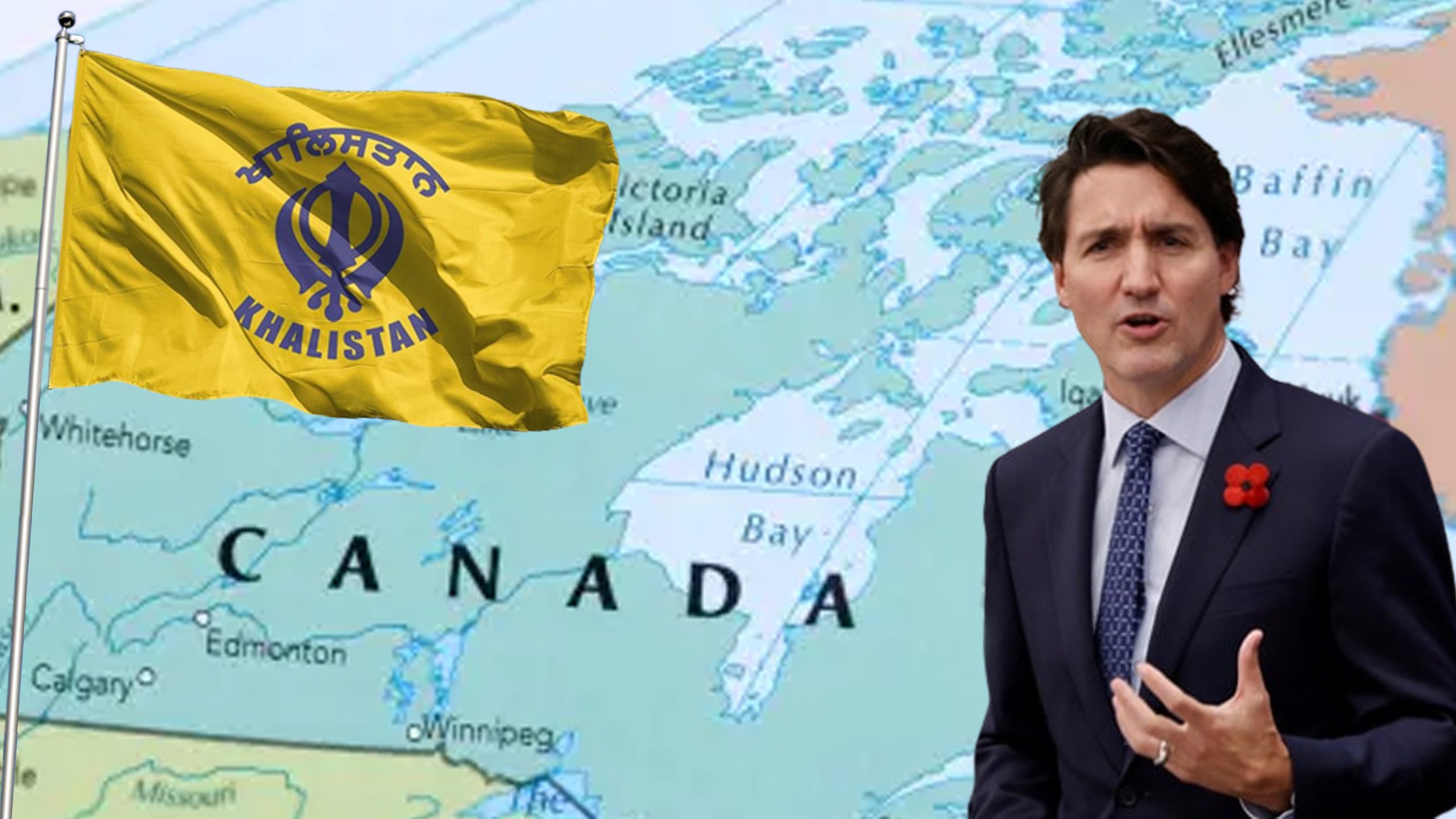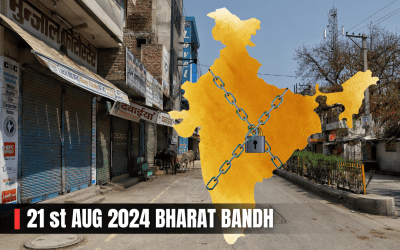In a recent press conference, Canadian Prime Minister Justin Trudeau reiterated Canada’s commitment to combat terrorism and firmly addressed concerns about the alleged soft stance on pro-Khalistan elements within the country. With growing activities and protests by pro-Khalistan supporters in Canada, tensions between India and Canada have escalated. In response, Prime Minister Trudeau defended Canada’s track record in taking “serious action” against terrorism and emphasized the importance of distinguishing between individual actions and the broader Canadian community. This article delves into the context surrounding the issue, analyzes the Prime Minister’s statement, and explores Canada’s commitment to countering extremism while upholding freedom of expression.
Understanding the Context
The pro-Khalistan movement seeks an independent Sikh homeland in Punjab, India. Although it was prominent in the 1980s, the movement has persisted in various forms, often drawing controversy due to its association with violence. India has expressed concerns about the presence and activities of pro-Khalistan elements in Canada, which they believe fuel separatist sentiments and promote extremism. The recent incident involving a parade float depicting the assassination of former Indian Prime Minister Indira Gandhi sparked outrage in India and amplified calls for Canada to take stronger action against such elements.
Trudeau’s Firm Stand Against Terrorism
Prime Minister Trudeau’s response during the press conference addressed the concerns raised by India and sought to clarify Canada’s position on terrorism. He categorically stated that Canada has always taken “serious action” against terrorism and will continue to do so. Trudeau emphasized that it is incorrect to perceive the Canadian government as soft on pro-Khalistan supporters and terrorists. He acknowledged the diversity within Canada and the importance of freedom of expression but stressed that violence and extremism would always be combated.
Promoting Freedom of Expression
Canada prides itself on being a diverse and inclusive nation that upholds the right to freedom of expression. Trudeau acknowledged this fundamental value while affirming that actions inciting violence or promoting extremism would face opposition from the Canadian government. Balancing the preservation of freedom of expression with the prevention of violence and radicalization remains a challenge for any democratic society. Canada’s commitment to tackling extremism while respecting individual rights is reflected in Trudeau’s statement.
India’s Concerns and Diplomatic Dialogue
India’s concerns regarding pro-Khalistan elements in Canada are rooted in their belief that these elements are actively involved in promoting violence and extremism. The Indian government’s summoning of the Canadian envoy and subsequent demarche aimed to draw attention to these concerns and seek appropriate measures to address the issue. The assurance given by Canada to ensure the safety of Indian diplomats, along with Foreign Minister Melanie Joly’s condemnation of the “unacceptable” promotional material, signals an ongoing diplomatic dialogue between the two countries.
Examining Canada’s Multiculturalism Policy
Canada’s multiculturalism policy plays a significant role in countering extremism and promoting social cohesion. The policy recognizes and celebrates the diverse cultural, ethnic, and religious backgrounds of its citizens, fostering a sense of belonging and inclusion. By embracing multiculturalism, Canada provides an alternative narrative to extremist ideologies that seek to divide communities along ethnic or religious lines. This approach promotes understanding, respect, and dialogue among different groups, reducing the appeal of radicalization. Canada’s commitment to multiculturalism reflects its belief in the power of diversity as a strength and an effective tool in countering extremism.
Engaging with the Sikh Community
Given the context of the pro-Khalistan movement, engaging with the Sikh community becomes essential for Canada’s efforts to counter extremism effectively. The Sikh community in Canada is diverse and represents a broad range of perspectives. The Canadian government must foster constructive dialogue with Sikh leaders, organizations, and community members to address concerns, dispel misconceptions, and prevent the radicalization of individuals. By actively involving the Sikh community in discussions and initiatives aimed at countering extremism, Canada can harness their insights, experiences, and expertise in developing comprehensive strategies that resonate with the community and promote shared values.
Enhancing Intelligence and Information Sharing
To effectively combat terrorism and extremist activities, intelligence and information sharing between government agencies and international partners is crucial. Canada recognizes the importance of robust intelligence capabilities and collaboration to identify and disrupt potential threats. By strengthening intelligence-sharing frameworks and partnerships with other countries, including India, Canada can stay ahead of evolving security challenges. Timely and accurate information exchange enables proactive measures to be taken against individuals or groups involved in extremist activities, ultimately safeguarding the nation and its allies from the risks posed by terrorism.
Preventing Online Radicalization
The rise of online platforms and social media has provided a new avenue for the spread of extremist ideologies and recruitment. Canada acknowledges the significance of addressing online radicalization as a key aspect of its counterterrorism efforts. The government collaborates with technology companies to develop tools and strategies to detect and remove extremist content online. Additionally, Canada invests in educational campaigns and digital literacy programs to raise awareness about the risks of online radicalization and equip individuals with the skills to critically evaluate information and resist extremist narratives. By tackling online radicalization, Canada aims to disrupt the recruitment and radicalization process and prevent acts of violence.
Countering Extremism through Legislative Measures
Prime Minister Trudeau’s assertion that Canada takes “serious action” against terrorism extends beyond rhetoric. The Canadian government has implemented legislative measures to combat extremism effectively. For instance, the Combating Terrorism Act passed in 2013 enhances Canada’s ability to investigate and prosecute individuals involved in terrorist activities. This legislation enables law enforcement agencies to take proactive measures to prevent acts of terrorism and dismantle extremist networks. By strengthening the legal framework, Canada demonstrates its commitment to protecting its citizens and maintaining national security.
International Cooperation in Countering Terrorism
Canada recognizes that countering terrorism requires international collaboration. Prime Minister Trudeau’s statement reflects Canada’s willingness to work with partner countries, including India, in addressing the threat of extremism. By maintaining open lines of communication, sharing intelligence, and coordinating efforts, Canada seeks to create a global network against terrorism. Such collaboration is crucial in combating transnational extremist groups that transcend geographical boundaries. Canada’s commitment to international cooperation underscores its role as a responsible global actor in the fight against terrorism.
Promoting Dialogue and Community Engagement
In addition to legislative measures and international cooperation, Canada recognizes the importance of promoting dialogue and community engagement as essential tools in countering extremism. The Canadian government actively supports initiatives that foster interfaith and intercultural dialogue, aiming to build stronger and more inclusive communities. By encouraging open conversations and understanding, Canada seeks to address the root causes of radicalization and prevent the spread of extremist ideologies. Through partnerships with community organizations, religious leaders, and civil society, Canada is creating an environment that promotes social cohesion and resilience against extremist narratives.
Preventing Radicalization Through Education and Awareness
Preventing radicalization and extremism requires a comprehensive approach that includes education and awareness programs. Canada invests in initiatives that educate individuals about the dangers of extremism and equip them with the critical thinking skills necessary to challenge extremist narratives. By promoting tolerance, respect for diversity, and democratic values, Canada aims to create an environment that rejects radical ideologies. Educational institutions play a vital role in fostering these values by providing students with opportunities to learn about different cultures, religions, and perspectives. Through these efforts, Canada seeks to empower individuals to make informed choices and become active contributors to a peaceful and inclusive society.
Overall Conclusion
Prime Minister Justin Trudeau’s resolute statement on Canada’s approach to countering terrorism and pro-Khalistan elements underscores the country’s unwavering commitment to tackling extremism in all its forms. Canada’s multifaceted strategy encompasses a range of measures aimed at safeguarding its citizens, promoting social cohesion, and upholding democratic values. Through legislative actions, international cooperation, engagement with communities, education and awareness programs, multiculturalism, intelligence sharing, and efforts to combat online radicalization, Canada demonstrates its comprehensive approach to countering the threats posed by extremist ideologies.
Canada’s legislative framework provides a robust foundation for combating terrorism and extremist activities. Laws such as the Combating Terrorism Act empower law enforcement agencies to investigate and prosecute individuals involved in terrorist acts. By strengthening the legal framework, Canada equips itself with the tools necessary to prevent acts of terrorism, dismantle extremist networks, and protect its citizens.
Recognizing the transnational nature of terrorism, Canada actively engages in international cooperation to address the shared challenges posed by extremism. By maintaining open lines of communication, sharing intelligence, and coordinating efforts with partner countries, including India, Canada aims to build a global network against terrorism. This collaboration helps enhance the effectiveness of counterterrorism efforts and ensures a unified response to extremist threats.
Canada’s commitment to promoting dialogue and community engagement plays a vital role in countering extremist narratives. The government actively supports initiatives that foster interfaith and intercultural dialogue, creating spaces for open conversations and understanding among diverse communities. By addressing the root causes of radicalization and promoting inclusivity, Canada seeks to reduce the appeal of extremist ideologies and build stronger, resilient communities.
Education and awareness programs are essential components of Canada’s approach to countering extremism. By promoting tolerance, respect for diversity, and democratic values, these initiatives equip individuals with the critical thinking skills necessary to challenge extremist narratives. Educational institutions play a pivotal role in fostering these values, providing students with opportunities to learn about different cultures, religions, and perspectives. Through these efforts, Canada aims to empower individuals to make informed choices and become active contributors to a peaceful and inclusive society.
Canada’s commitment to multiculturalism is another crucial aspect of its strategy. The multiculturalism policy recognizes and celebrates the diverse cultural, ethnic, and religious backgrounds of its citizens. By embracing multiculturalism, Canada provides an alternative narrative to extremist ideologies that seek to divide communities along ethnic or religious lines. This inclusive approach fosters a sense of belonging and inclusion, reducing the appeal of radicalization.
Engagement with the Sikh community is of particular significance in the context of the pro-Khalistan movement. Canada recognizes the importance of constructive dialogue with Sikh leaders, organizations, and community members to address concerns, dispel misconceptions, and prevent the radicalization of individuals. By actively involving the Sikh community in discussions and initiatives, Canada can harness their insights, experiences, and expertise in developing strategies that resonate with the community and promote shared values.
Furthermore, Canada emphasizes the importance of intelligence sharing and collaboration with partner countries to stay ahead of evolving security challenges. By enhancing intelligence capabilities and partnerships, Canada can proactively identify and disrupt potential threats, safeguarding the nation and its allies from the risks posed by terrorism.
The government’s commitment to countering online radicalization is also paramount. Canada collaborates with technology companies to develop tools and strategies to detect and remove extremist content from online platforms. Additionally, educational campaigns and digital literacy programs raise awareness about the risks of online radicalization and empower individuals to critically evaluate information, resisting extremist narratives.
In conclusion, Prime Minister Trudeau’s firm stance on countering terrorism and pro-Khalistan elements reflects Canada’s comprehensive approach to combating extremism. Through a combination of legislative measures, international cooperation, dialogue, community engagement, education, multiculturalism, engagement with the Sikh community, intelligence sharing, and efforts to prevent online radicalization, Canada demonstrates its commitment to protecting its citizens, promoting social harmony, and upholding democratic values. As Canada continues to confront the challenges posed by extremism, it remains dedicated to evolving strategies, collaborating with international partners, and fostering a safer and more resilient future for all.








0 Comments